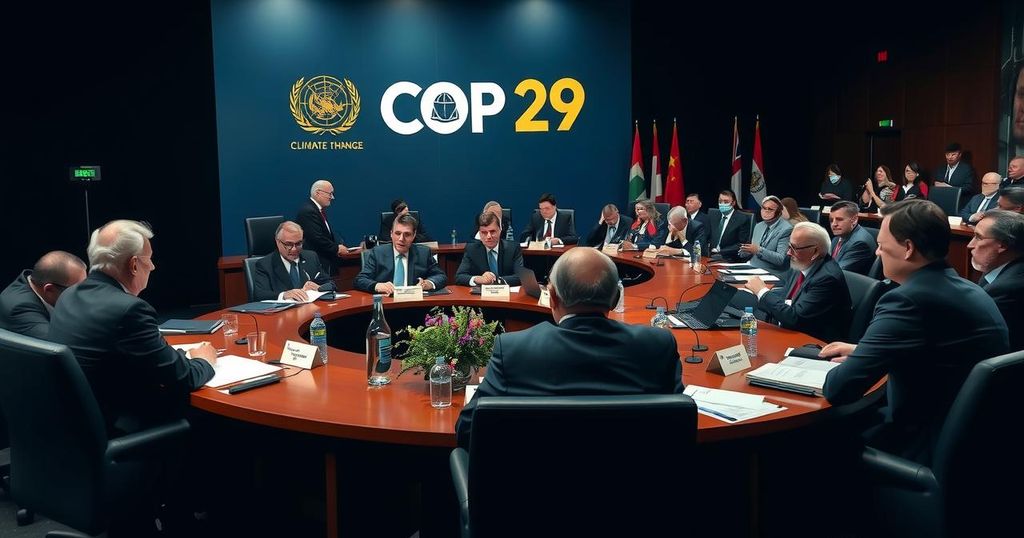Divergent Perspectives on Climate Action Highlighted at COP29

At COP29 in Azerbaijan, world leaders expressed conflicting strategies for addressing climate change as a new report indicates record high carbon emissions from fossil fuels. The study suggests that achieving carbon neutrality is now critical by the late 2030s. Discussions revealed significant disparities in financial commitments needed to support developing nations facing severe climate impacts, highlighting the ongoing tension between economic sustainability and environmental action.
World leaders at the COP29 climate talks in Azerbaijan expressed divergent views on the escalating climate crisis as recent reports highlighted record carbon dioxide emissions from fossil fuels. With a new study stating that reaching carbon neutrality is now imperative by the late 2030s to limit global warming to 1.5 degrees Celsius, calls for urgent action were pronounced by leaders including Azerbaijan’s chief negotiator, Yalchin Rafiyev. In stark contrast, representatives from fossil fuel-reliant nations argued for a more gradual transition, citing the need to balance economic stability with environmental responsibilities. Amid growing concerns regarding climate finance, a draft deal proposed to improve financial support for developing nations remained unresolved. Leaders from vulnerable countries such as the Bahamas highlighted the disparity in climate financing, emphasizing that while they face crippling debt, funding must shift from loans to grants. Calls for major economies, including China, to contribute fairly to climate funding echoed throughout discussions as leaders insisted on comprehensive solutions to avert a climate catastrophe.
The COP29 conference serves as a significant arena for global leaders to address climate change, particularly as emissions from fossil fuels soar to unprecedented levels. Preliminary findings from the Global Carbon Project indicate that these emissions have surpassed previous records, raising alarms about the urgency required to meet the goals of the Paris Agreement. The divide between fossil fuel advocates and those advocating for immediate action against climate change complicates negotiations, especially regarding financial commitments necessary for vulnerable countries to adapt to climate impacts. The ongoing debate over the role of developed versus developing nations in combatting climate change reflects broader tensions in international relations and environmental policy.
The recent COP29 talks underscore the critical divide among global leaders regarding climate action and financial responsibility as emissions reach alarming heights. With the consensus that achieving carbon neutrality is imperative by the 2030s, the continuous struggle over fossil fuel reliance versus the urgency for effective climate strategies remains unresolved. The discussions serve as a poignant reminder that addressing climate change necessitates immediate and collaborative global action, especially in terms of equitable financial support for the nations most affected by climate disasters.
Original Source: www.wionews.com






